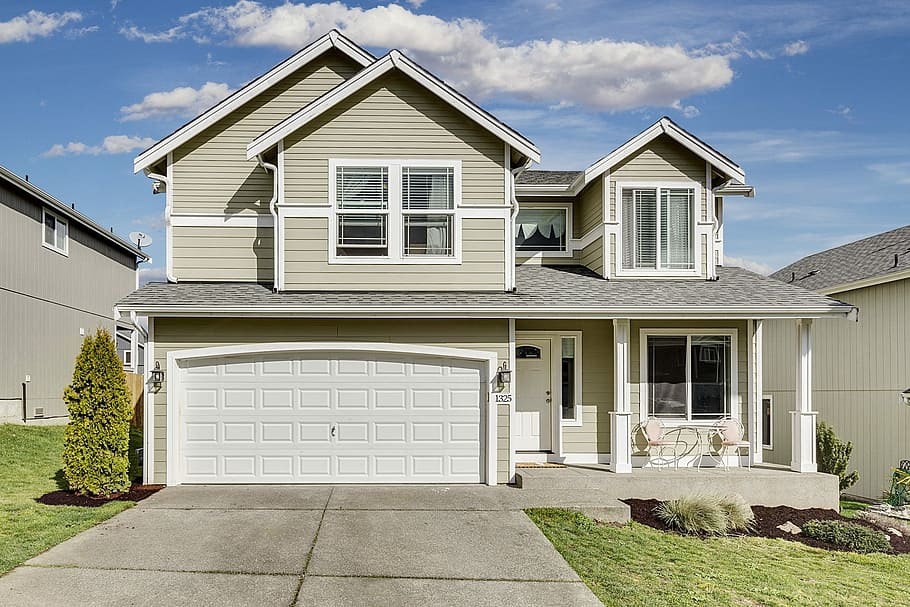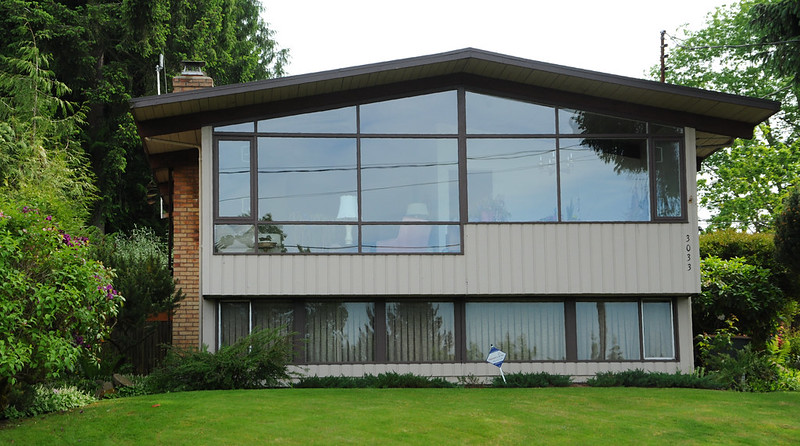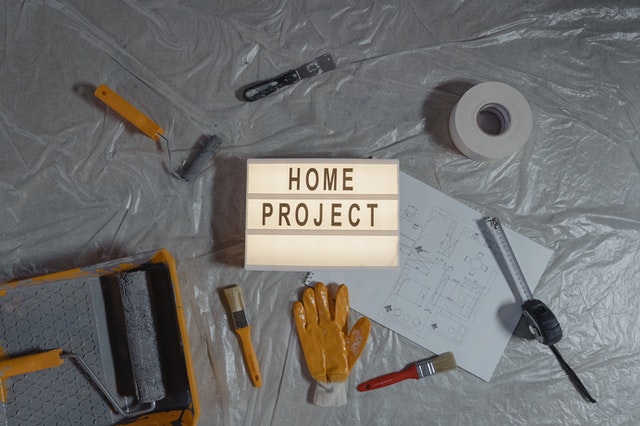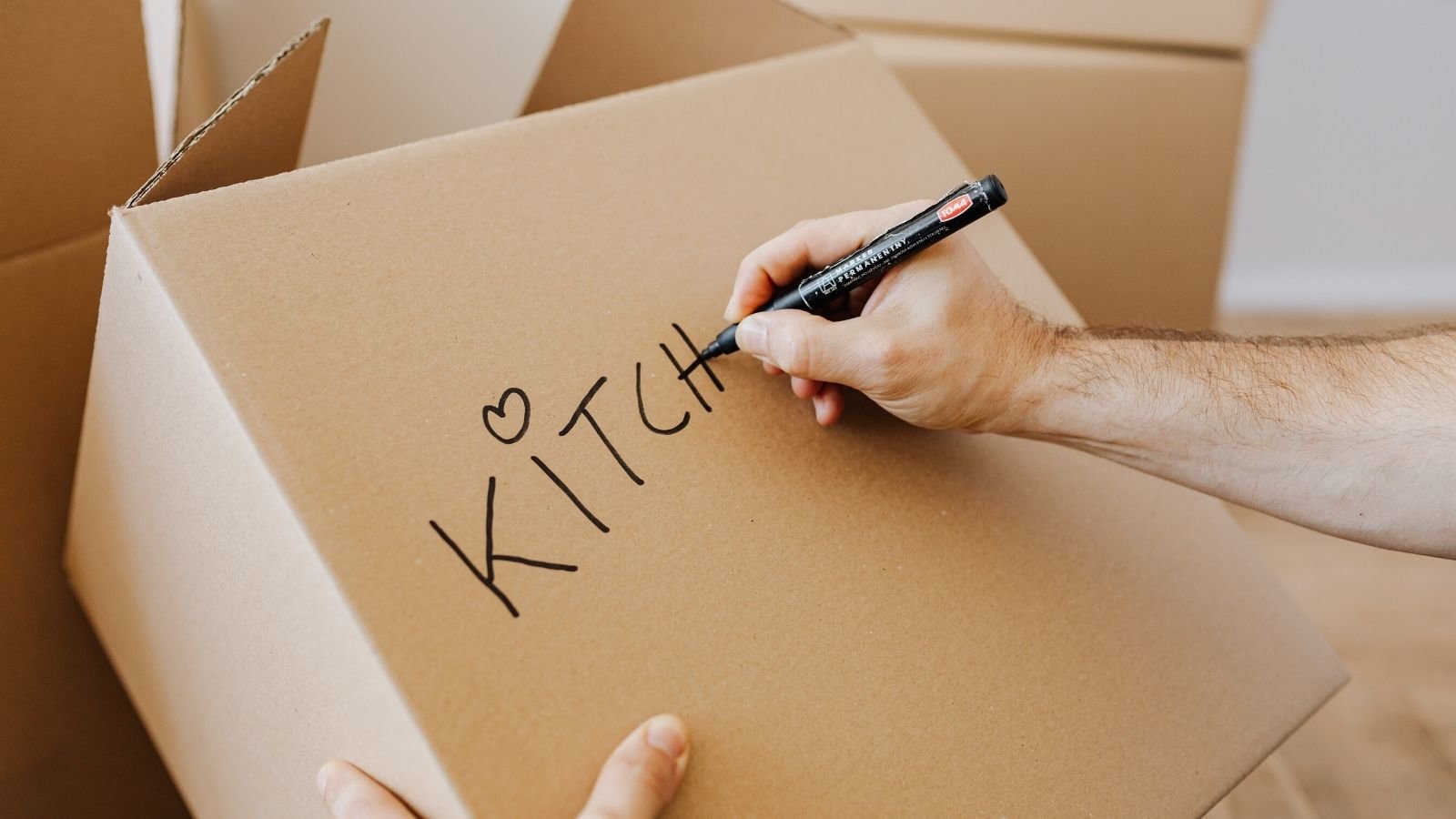Social Links Widget
Click here to edit the Social Media Links settings. This text will not be visible on the front end.
5 Ways to Save for Your Down Payment


Saving for a down payment is hard, but there are several ways to save up without breaking the bank and your lifestyle; first figure out much you need to save up, and then click here to discover tips about how to save effectively.
Post written by Team Schmid CENTURY 21 Fusion Realtor®
5 Reasons to Buy a Home in Winter


Winter might seem like not a great time to buy a home, but there are also many advantages to doing so like a less competitive market and the turn around time to buy a home is greatly reduced, plus many more reasons, to see 5 reasons why your should buy a home in winter; click here.
Post written by Jo-Anne Larre CENTURY 21 Fusion Realtor®
7 Signs It’s Time to Upsize


There are a few tell-tale signs that it is time to upsize your home, whether that be making room for new hobbies, a growing family or just needing more space to spread out. If some of these fit your current mind set, continue reading to see all 7 signs with explanations; click here.
Post written by Team Schmid CENTURY 21 Fusion Realtor®
9 Tips for Surviving the Holidays


The holiday season is always a stressful time of the year, no matter how big or small the celebration is. Here’s few great ideas contained in this blog to help you survive all of December and into the new year—to read these 9 survival tips, click here.
Post written by Margaret Baker CENTURY 21 Fusion Realtor®
5 Tips to Prep Your Home for a New Puppy


So you have decided to liven up your life by getting a new puppy. They are little balls of energy and are guaranteed to keep you entertained everyday. To make sure your home is safe and puppy ready—read these 5 helpful tips, click here.
Post written by Jo-Anne Larre CENTURY 21 Fusion Realtor®
Surviving Winter Blues


In a blink of an eye, winter has arrived. Doing any outdoor activities or even driving anywhere seems impossible at times. To increase mental health and overall well-being, you can try a few things to beat those winter blues. To read 4 helpful hints, click here.
Post written by Team Schmid CENTURY 21 Fusion Realtor®
Fall Home Maintenance Tips

Fall is finally here! The leaves are changing colours, temperatures dropping and you know what that means: Home Maintenance Time. To ensure your home stays in tip-top shape during these chilly months, there are a few tasks worth completing every year to keep on top of maintenance habits that keep your home healthy inside & out. To Read the top 6 tips click here.
Post written by Kent Braaten CENTURY 21 Fusion Realtor®
Benefits of Owning Rental Properties

Investing in real estate has always been rated as one of the best ways to invest your money. This was undeniably true in the past, but is a property investment still a viable option today?
The answer is yes and there are good reasons for this.
Is Property Investment Worth It?
Over the last several decades, a housing availability crisis has been slowly developing in many Canadian cities. Current statistics show that 1 in 5 Canadian renters will be unable to find the type of accommodation they want. This means that for the foreseeable future, there is going to be a constant demand for more housing in many Canadian cities.
Second, a high percentage of millennials and baby boomers are choosing to rent, rather than own homes. There is a growing trend among the younger generation to place greater value on the freedom of renting than the security of owning a home. This is increasing the demand across Canada for rental properties.
The result of these two factors is that rental properties in many cities have a vacancy rate that is just a little above zero percent. What this means, says Leenan Properties, is that apartments are barely vacant before they are snapped up and that is good news for would-be property investors.
In addition to these factors, Canada is such a huge and diverse country that opportunities in the real estate market vary significantly across regions. There is never a lack of places where savvy investors can buy properties to make decent profits.
But just in case you are still asking why you should invest in rental properties, here are reasons why investment property trumps other forms of investments.
Why You Should Invest in Rental Properties
1. High Leverage

Getting a loan to invest in rental properties is relatively easier than getting a loan for other types of investment. Additionally, the loan amounts for real estate investments are higher.
With competing forms of investment, like stocks, gold, or cryptocurrencies, investors are often required to put up 100% of the purchase cost. But with investment properties, it is not uncommon for investors to provide only 20%-30% of the cost of the asset.
This means that with $30,000 of your own money, you will be able to purchase a property worth $210,000. This is because banks will readily lend you the rest of the money needed for the investment. This kind of leverage is not available with stocks or mutual funds.
2. Steady Cash Flow

For rental properties, investors do not have to endure a long waiting period before they begin to enjoy the rewards of their investments. A rental property can start to generate cash flow in its first month through rental income.
The property can provide all the money that the landlord needs to cover mortgage payments, running costs, and investment property taxes. After these expenses, owners will still have some money left over every month as their profits.
3. A Rental Property Pays for Itself
A rental property’s ability to generate enough cash to cover the property owner’s obligation to lenders is a huge advantage. It means the investment eventually pays for itself. Landlords can use their tenant’s money to pay off the mortgage on the property.
For every year that they hold the property, landlords reduce the amount they owe on it while also increasing their equity in the property. The owner can eventually gain access to this money by refinancing the loan or selling the home.
4. Higher Return on Investment

The ROI on investment real estate surpasses that on many other types of investment. This is partly as a result of the higher leverage property investors enjoy. It is also due to the steady cash flow generated by the asset.
Leverage allows investors to purchase properties far above their means. Monthly incomes from the property take care of marginal costs and interest payments on the loan. The owner does not pay out-of-pocket to own or maintain the investment, yet their asset keeps growing.
5. Tax Benefits
Owners of rental properties perform a public service; they take on personal risk to provide homes for other people. The government recognizes landlords’ roles and encourages them by offering tax incentives.
Tax benefits on rental properties come in several forms and landlords can take advantage of them all. Tax-deductible expenses for a rental property includes repairs, depreciation, interest on the mortgage, property taxes, legal/professional fees, insurance, and more.
6. Greater Flexibility
Investing in real estate offers landlords greater flexibility in how they manage an asset. Investors in stocks and mutual funds may have the freedom to choose what they want to buy, but they must give someone else the right to manage the assets. The manager invariably controls the investors’ money.
With rental properties, on the other hand, landlords are involved in every step of the way. They can choose to rent in the short or long-term. They may also choose to manage their property directly or use the services of a property manager.
7. Asset Appreciation

Even though the value of properties may rise and fall in the short run, real estate prices tend to go up in the long run. Owners can buy and hold a property to take advantage of this long-term value appreciation.
The rate at which property prices appreciate varies according to market conditions in a location. But it is not uncommon for owners to make multiples of their original investment, after a few years.
8. Hedge Against Inflation
Home values are relatively stable compared to other types of assets. They do not fall as sharply as the value of stocks often does. And when property prices move, they do so, invariably, in the same direction as inflation. This means that the value of the asset is not eroded by inflation. Rather than losing value, investment properties retain value in the face of inflation.
Thinking of investing in owning a rental property? Contact us to chat with one of our expert real estate professionals in Saskatoon today!
Move-In Ready vs Fixer-Upper: What to Buy?

Homebuyers often wonder which option is better when buying a property. Which is better, a move-in ready or a fixer-upper? Initially, making the best choice may seem difficult. But after going through this article, you will have the necessary information to guide you in making the best choice.
If you want a move-in ready or a fixer-upper, there are several factors to consider. Below are the pros and cons of move-in-ready and fixer-upper homes.
Pros of Move-In Ready Properties
Less Work & Stress
If you are not a do-it-yourself person or you have a tight deadline to make use of the apartment, you may want to consider a move-in-ready house. That is because it doesn’t require any additional work from you. Also, you wouldn’t have the stress of performing repairs.
Fewer Surprises
If you buy a new move-in-ready property, you have lower chances of acquiring a home that has significant issues. But a fixer-upper may give more risk of buying a house with serious problems such as mold issues, pest infestation, structural damages, electrical defects, etc.
You Get a Modern Property

Since the real estate market is highly competitive, most move-in-ready properties have modern trends and features. Some of the new trends you may see include eco-friendly features, open floor plans, modern appliances, etc. It may be expensive to incorporate all these trends in a fixer-upper property.
Cons of move-in ready properties
Higher Price
The prices of homes that are move-in ready are far higher than fixer-upper houses. That is because the properties have all the crucial fixtures. However, sellers expect more returns on their investment. For that reason, they will increase the price to earn more interest.
Minimal Personalization
When you buy a move-in-ready home, you have less control over the customization. The seller will design it according to their taste. To enjoy the layout or design that you want will involve spending more money on remodeling. Else, you may have to accept the property that way.
Pros of fixer-upper homes
Customization
Fixer-upper homes provide you the opportunity to personalize your home according to your lifestyle. Here, you have more creative control than move-in-ready homes. If you are a creative person with skills, you can perform some of the remodeling projects. It feels so satisfying when you behold the outcome of your creativity at the end of the project.
Less Expensive

Fixer-upper homes are not as pricey as move-in-ready properties. If you are lucky to find a fixer-upper house in a costly neighborhood, you can spend less to acquire the property. But after your renovation and upgrade, the house will amass more value. That will make you pay only a fraction of what others did to have a move-in-ready home in that environment.
Minimal Competition
Fixer-upper homes are less competitive than move-in-ready properties. Since the competition is low, you have a better opportunity to negotiate with the seller. But this is not obtainable with the move-in ready properties because of the hot market.
Cons of Fixer-Upper Homes
Hidden Costs
Although the cost of fixer-upper homes is not as expensive as move-in-ready properties, the expenses on repairs and upgrades may be outrageous. That usually happens when the property has hidden issues like mold or structural damages that incur additional expenditures.
Time-Consuming
Home renovation takes time. For that reason, you will need to secure another place to reside and have more patience while upgrading the house. Performing the project by yourself will take more time. But the duration can be lesser if you hire a contractor. However, a move-in-ready property will still be faster than a fixer-upper.
Tips to Reduce Your Home Renovation Costs

Fixer-upper properties are more lucrative, especially when you know how to minimize your home improvement costs. Below are some helpful tips.
1) Hire a Home Inspector Before the Purchase
A home inspector will help you avoid properties that will be very expensive to repair. As a result, they help you minimize costs. Home inspectors will assess everything on the property and identify issues that can cause more expenses in the future.
2) Consider the Re-Sale Value
If you are planning to sell the property, the deal needs to be rewarding. For that reason, it is vital to know the resale value of the home. If you sum up the purchase price and the expected renovation costs, will you have more returns after selling the property?
3) Get Help from Professionals
Get bids from at least three contractors and compare them. Ensure that the contractor of your choice has the necessary licenses and insurance.
The Bottom Line
A fixer-upper home is an excellent choice. That is because you can acquire the property at a reasonable price. It is easy to add more value to the property if you hire the services of professionals that have experience in upgrading fixer-upper homes.
9 Simple Ways to Organize Your Moving Process

Moving can be an expensive and exhausting process, especially if you procrastinate on moving tasks like packing. However, simple acts like developing a packing schedule and colour-coding your boxes will have a large impact on keeping your move organized and efficient.
1. Develop a Packing Schedule
As soon as you have a general date of when you will move, you should start developing a packing schedule and try to stick to it as much as possible. There is no perfect packing schedule; you have to find what works best for you. You could set a goal of packing so many boxes each day, or you could block out certain days specifically for packing.
You should also have a schedule of other moving-related tasks, such as transferring utilities and changing your address with the post office and subscription services. And if you have all of your tasks written down in one place, you will be more likely to accomplish them.
2. Take Time to Organize Your Current Home
Before you begin the packing process, you should take time to organize your current home. Quick actions, like arranging your clothes in the closet and placing all the dishes and containers in their proper kitchen cabinet, will help you keep your move organized. As you pack items, you won’t have out-of-place items that end up packed in the wrong box.
3. Declutter as You Pack
We’re all guilty of hoarding items because we have an emotional attachment toward them or want to save them “just in case.” However, this means more to pack, move, and unpack, and these items could be taking up valuable space in your new house.
As you pack, you should pull out items you no longer use or need and either donate or sell these items. If you have enough items, you could even have a yard sale to help offset your moving costs. It’ll be hard to get rid of certain items, but it’ll be worth it when you have more room in your new house for items that you actually need.

4. Start Packing in Advance
One of the key ways to have an organized move is to start packing in advance. Even if you think that you don’t have much to pack, you should still start packing in advance because everyone always has more items than they realize. You can start with items such as holiday décor, out-of-season clothing, and entertainment items, like books and movies. It’s better to be ahead on your packing schedule than to be frantically packing boxes the night before moving day.
5. Color-Code Your Boxes
Color-coding your boxes will be an easy way for people to quickly determine where boxes should be unloaded in your new house. You should assign contrasting colors to all your rooms so boxes can quickly be moved to the living room if they are blue or master bedroom if they are orange. In addition, you should include details on what each box contains in case you need to quickly find a specific item.
6. Pack Items Based on Your New House’s Layout
As you pack, you should make an effort to pack items based on how they will be used in your new home. If your children will have separate rooms in your new house, you should pack their items separately so the unpacking process will be easier. By taking a few extra minutes as you pack, you will save a great deal of time and reduce the possibility of items being lost in the unpacking process.
7. Take Pictures of Furniture & Electronics Setups
After you’ve moved in, it can be frustrating to set up your furniture and electronics especially if you didn’t keep the directions. To save yourself this annoyance, you should take pictures of the intricate setups around your home so you can reference them when you are setting up these items in your new space. To avoid losing any wires or screws, you should place each item’s accessories in a labeled bag and keep all bags in one box or bag so you can easily find it when you are unpacking.

8. Have a Holding Area for Packed Boxes
In your current house, you should create a holding area (ex. garage, dining room, etc.) where you can store packed boxes. By storing them out of your way, you will still have space to move around your house and will also have a visual representation of how much you have accomplished in your packing process. On moving day, you will find it easier to have the majority of the boxes in one location instead of having to locate boxes around the house.
9. Confirm with Family, Friends & Movers
Two weeks before moving, you should call everyone that is assisting you to confirm their availability on moving day. Whether it’s your friends, family, or movers, you should double check with everyone in case someone had a change in plans.
While the moving process will still have a certain amount of stress and anxiety associated with it, it can easily be transformed into an efficient and even enjoyable process. If you struggle with keeping your move organized, you should remind yourself of the end result…a new living space that is organized and free of moving boxes!
Valerie Cox is a contributing writer for North American Van Lines. In her spare time, she enjoys spending time with her family, reading, and volunteering in her local community.

 Facebook
Facebook
 X
X
 Pinterest
Pinterest
 Copy Link
Copy Link
